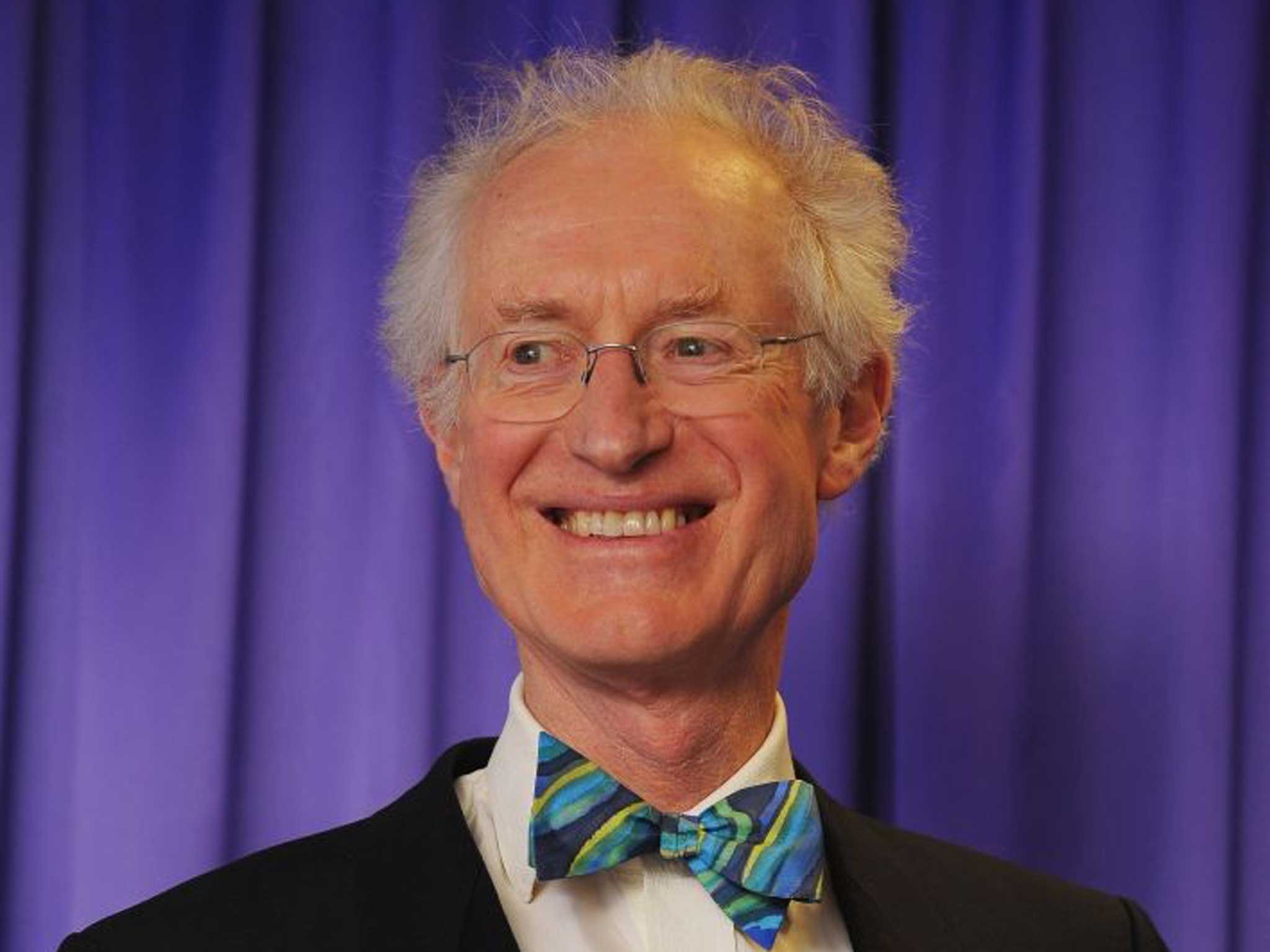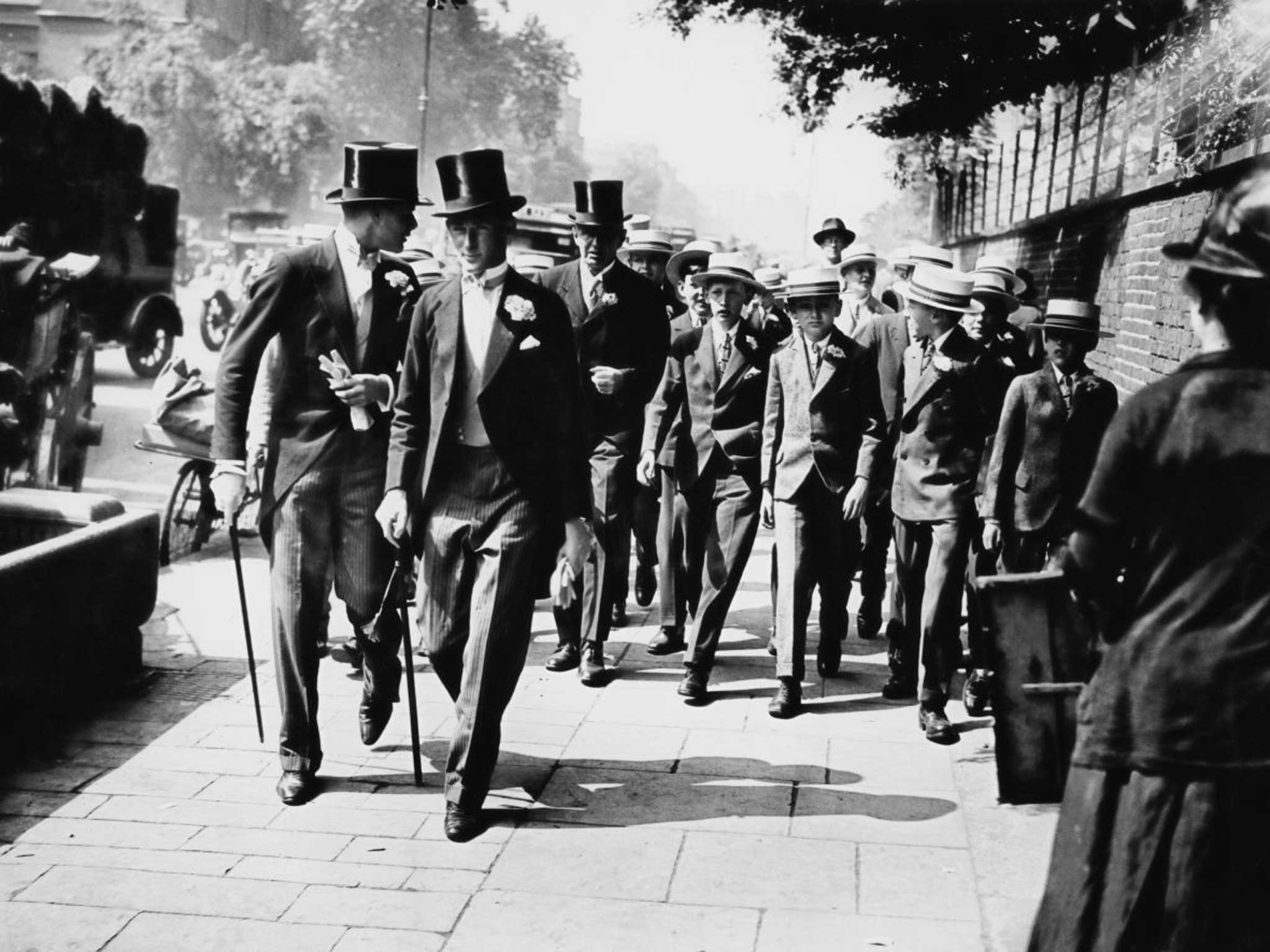Your support helps us to tell the story
From reproductive rights to climate change to Big Tech, The Independent is on the ground when the story is developing. Whether it's investigating the financials of Elon Musk's pro-Trump PAC or producing our latest documentary, 'The A Word', which shines a light on the American women fighting for reproductive rights, we know how important it is to parse out the facts from the messaging.
At such a critical moment in US history, we need reporters on the ground. Your donation allows us to keep sending journalists to speak to both sides of the story.
The Independent is trusted by Americans across the entire political spectrum. And unlike many other quality news outlets, we choose not to lock Americans out of our reporting and analysis with paywalls. We believe quality journalism should be available to everyone, paid for by those who can afford it.
Your support makes all the difference.Rarely can a single school – state-run, private or otherwise – have attracted quite so many column inches as Eton College managed to rack up in the past week. First we had the fall-out from the disagreement, which is putting it mildly, between Michael Gove and his party leader over the number of Old Etonians in the Cabinet. Then came news of a CBBC documentary booked to examine the prospects of three newly admitted Foundation Scholars, one of whose parents ran a Chinese takeaway in Leigh-on-Sea, Essex. As if this weren't enough, it was then revealed that Martin Amis is using the place to illustrate one or two of his theories about the changing nature of the British class system in a programme to be broadcast tonight on BBC4.
Understandably, not all of this coverage was favourable. In fact, some of it was positively disobliging. Mr Gove is supposed to have referred to the preponderance of OEs in the uppermost reaches of government as "ridiculous". The CBBC documentary had several critics wringing their hands over the thought that the new boys might gradually become alienated from the comforts of hearth and home, even before one took into account, as my colleague Ellen E Jones in our stablemate daily newspaper put it, "all the other deserving children they'd left behind". Amis, too, apparently has some harsh words to say about the ability of filthy lucre to secure an Eton berth rather than class-sanctioned entitlement.
These observations will no doubt have stirred a variety of responses in the predominantly non-Etonian public looking on, ranging from incredulity to envy, but the one impression they are calculated to reinforce – if it needed any reinforcement – is what might be called the Etonian mystique: an almost indefinable quality that goes far beyond the political stranglehold the school is thought to exert and extends into nearly every area of political and artistic life. Professor John Carey, in his newly published memoir, laments the number of dimwit public-school boys who infested Oxford when he was a twentysomething don, but this complaint could never be made about the young gentlemen from Berkshire. Take Eton out of 20th-century English literature, for example, and you lose George Orwell, Cyril Connolly, Anthony Powell, Henry Green, Harold Acton and Ian Fleming – and this is only the generation of 1916-1925.
As to what this mystique relies on for its effects, it would be an absurdly reductive critic of Eton who attributed its influence simply to money and class, for like most forms of one-upmanship, the thing is far less tangible, a matter of essence, gesture, inference, an assumption of superiority made all the more potent by never being formally expressed.
As the product of a provincial direct grant school, I first came across Etonians at Oxford. Here they were distinguished by their extreme self-deprecation – they might possess a congratulatory first in Sanskrit, but they would take elaborate pains to avoid drawing attention to the fact – and an absolutely exquisite courtesy. Rather like Michael Gove at his little dinner chez Murdoch, I once complained to a friend called James Ashe-Taylor that "these bloody Etonians get in everywhere", receiving only the wryest of grimaces to confirm that I had unwittingly insulted James's alma mater.

There generally comes a Damascene moment of revelation, common to Etonians and non-Etonians alike, when the full magnitude of the place's sophistication, and the well-nigh magisterial sheen that it bestows on its alumni, hits you between the eyes. In Enemies of Promise (1938), Cyril Connolly recalls how, visiting Eton to sit the scholarship exam, he looked over a bridge as a boy in an outrigger came gliding past, whereupon one schoolboy standing nearby remarked to his friend "Really that man Wilkinson's not at all a bad oar". The foppish drawl, the two exquisites with their top-hats pushed to the back of their heads, the graceful sculler beneath the bridge: all this seemed to a wide-eyed Connolly "the incarnation of elegance and maturity".
My own Eton moment came all of 30 years ago when, just down from Oxford and hanging around the offices of The Spectator, I happened to eavesdrop on the magazine's Old Etonian editor, Alexander Chancellor, debating with his Old Etonian deputy editor, Simon Courtauld, the question of whether or not to attend that year's Royal Ascot.
"Frightful bore, having to dress up in a morning coat …" "Yes, frightful bore. X said he'd be there, though." "Did he?" "Yes, bringing some woman, I believe." There was a pause while Chancellor digested this nugget. "My sister, I hope" he finally returned. At the age of 22, this, it went without saying, was the most sophisticated Mr Worldly-Wiseman conversation I had ever heard.

It will be argued that in listening to this exchange, and in not resenting it, in finding it at once funny and absurd and enticing, I was being a traitor to my class, and that any self-respecting, modestly educated provincial would have quit the building forthwith to offer his services to the New Statesman. The problem, alas, was that I liked the Old Etonians of The Spectator, who were far more hospitable to up-and-coming talent than Fleet Street's lefty fringe and did not care what school their recruits had been to provided they could put words on paper. The Eton manner, which they epitomised in spades, may well have been founded on charm, of whose dangers Charles Ryder in Brideshead Revisited is constantly warned, but even that arch-puritan (and Old Etonian) George Orwell once declared that had he been able to fight in the English Civil War he would have been a Cavalier as the Roundheads were "such dreary people".

None of this is to ignore the ludicrous spectacle of a government containing large numbers of people who when they meet on the Westminster stair presumably wink knowingly and mutter the words "Floreat Etona" (Let Eton flourish). On the other hand, given the absolute singularity of the Eton approach to teaching, it would be rather surprising if the school didn't continue to churn out statesmen, diplomats and industrial wire-pullers. In an essay looking back on his time there in the early 1920s, Anthony Powell noted how the staff contrived to make the government of the country somehow seem a personal matter. "It was as if, instead of saying, 'If you don't learn to speak French properly you will never be able to enjoy yourself in Paris,' our mentors said 'If you don't learn some sort of civilised behaviour, England will become uninhabitable for everybody'."
The psychological consequences of this attitude to education lie scattered around the political and social landscape of the past couple of centuries, and are not altogether to be despised. Naturally, a true egalitarian would want the place razed to the ground and the playing fields dug up to grow cabbages. At the same time, it is a fact – I write this as a supporter of the Labour Party, by the way – that David Cameron always looks a much more plausible political operator than Ed Miliband, and that the roots of this plausibility lie in the abstract quality I detected in James Ashe-Taylor's polite demurral and Alexander Chancellor's suavity about his sister's love-life: the Eton manner.

Join our commenting forum
Join thought-provoking conversations, follow other Independent readers and see their replies
Comments